Four years ago, I was working for the Miranda Priestly of financial services.
She didn’t disagree with you, she “violently disagreed” with you. Her colleague, my senior, confided in me, “Your boss is difficult.” My forced grin showed I agreed.
Up until I worked for her, I enjoyed my career in finance. Over two years, it went from enjoyment to depression to desperation. When I started looking forward to weekends only to hide in bed, I knew things were bad.
My last performance review with her was Fatal Attraction meets The Twilight Zone. She was saying things that weren’t true and dismissing the truth. In a flash, I felt adrenaline take over my body and realized that I was being pushed out. Nothing I said or did would change my fate.
I was destined to either quit or be fired. I chose the former. I went into her office and resigned. The best part was when she asked what I planned to do.
“Nothing,” I said.
It was the best way give her the middle finger without giving her the middle finger.
Had I paid attention, I would’ve know it was time to quit my job 13 years earlier.
The whisper.
When I moved to Denver from Philadelphia after college, I felt I needed to look like an adult.
Appearing like an adult, to me, meant decorating and furnishing my apartment from floor to ceiling in Pottery Barn.
The reason I moved to Colorado was to snowboard. This meant I needed new snowboarding clothes and equipment. These things were expensive and I had no money for them.
I rapidly acquired over $30,000 in credit card debt. Before I knew it, I also acquired the shame and regret that often come with debt.
One day, Oprah Winfrey hosted author Gary Zukav on her show to discuss his book, The Seat of the Soul. Zukav talked about how the universe gives us messages to learn our life’s purpose. He talked about how we often experience moments or spells of struggle and in those struggles is the message.
I thought, “It’s not ironic that I’m in financial services, telling people how to manage their money and buried in $30,000 worth of debt!”
Mark Twain said, “The two most important days in your life are the day you are born and the day you find out why.” I decided to turn my negative situation into a positive situation by helping others with their financial mistakes. I found my purpose. I was excited.
The inside voice.
I grew up in a time and a place when it wasn’t okay to be gay. While my straight friends and peers were having their first boy-girl flings, I was stag. While my college friends felt sexually liberated, I was sexually repressed.
When I moved out on my own, started my career, and was financially independent, I made up for lost time. Part of how I acquired my debt was living the high life on evenings and weekends. I didn’t miss a single happy hour, dinner or weekend of clubbing with my new, queer community. Feeling uninhibited after a lifetime of inhibition made for an exorbitant cocktail when mixed with first paychecks.
Shortly after I found and forgot my life’s purpose, I found my life partner. When we first met, we were in puppy love and spent and lived without consequence.
A year and a half later, we went from ludus love to a combination of philia and eros love. We disclosed to each other our financial situations. We wondered why our peers were getting married, buying houses and having children while we were living in a friend’s basement apartment. We were digging ourselves deeper and deeper into a financial hole both metaphorically and physically.
Between the two of us, we had $51,000 in credit card debt. To add in irony, my partner also had a career in financial services. Like me, he was helping people manage their money when he couldn’t manage his own. To make a long story short, we created a financial plan and paid off our debt in two and a half years.
We knew it was no coincidence that we were both in financial services and made the same financial mistakes. We decided to use our personal and professional experiences to write a book to help others become and stay debt free.
We were starting to live our life’s purpose.
The outside voice.
Then life happened. We were financially liberated and moved from our basement apartment into a condo on the 12th floor of a high-rise with a view of Downtown Denver and The Rocky Mountains. We went from rarely seeing the light of day in our basement apartment to being the last people in Denver to see daylight.
Our knowledge of living debt free helped us save more and spend smarter. We strategically used credit cards to acquire hotel points and airline miles so we could travel extensively.
Our newfound happiness made us better employees and our careers moved on and up. We’d forgotten about our life’s purpose and settled into our life. We’d have sporadic stints of writing our book, but not with the fervor of people living their life’s purpose.
Writing a book is hard and we settled for easy.
The scream.
Eight years later, I was one of those people who was perpetually writing a book. By then, the universe had given me many messages and opportunities to fulfill my role in life. I didn’t listen.
The universe then assigned Cruella de Vil as my boss. I spent the next two years holding onto the familiar and seemingly safe for dear life.
Even though we had the financial resources to let me quit and even when I desperately wanted to quit, I refused. I fought for the scary because the alternative was scarier.
The listening.
It was just before my 40th birthday. I was finding happiness in planning my birthday party. I chose the perfect location. I ordered a cake from my favorite pastry shop. I invited my closest friends and family.
By then, the universe was done. When I felt that adrenaline infuse my body and I realized that I was being pushed out, in that moment I learned I had no option but to live my life’s purpose.
I went home that evening feeling calm and relieved. I couldn’t do what wasn’t doable. I talked with my husband, who knew I was depressed and masking my depression with a birthday party. We quickly agreed it was time to do what we were meant to do.
I quit my job.
The fulfilling.
Shortly thereafter we finally finished and published our book. We got serious about blogging. We turned our hobby into a business. Three years later our business is on its way to providing us the life we want to live and is helping live better lives.
If you’re trying to figure out your life’s purpose, whether you should quit your job or stay where you are, my guess is the universe already told you.
Listen before it screams.

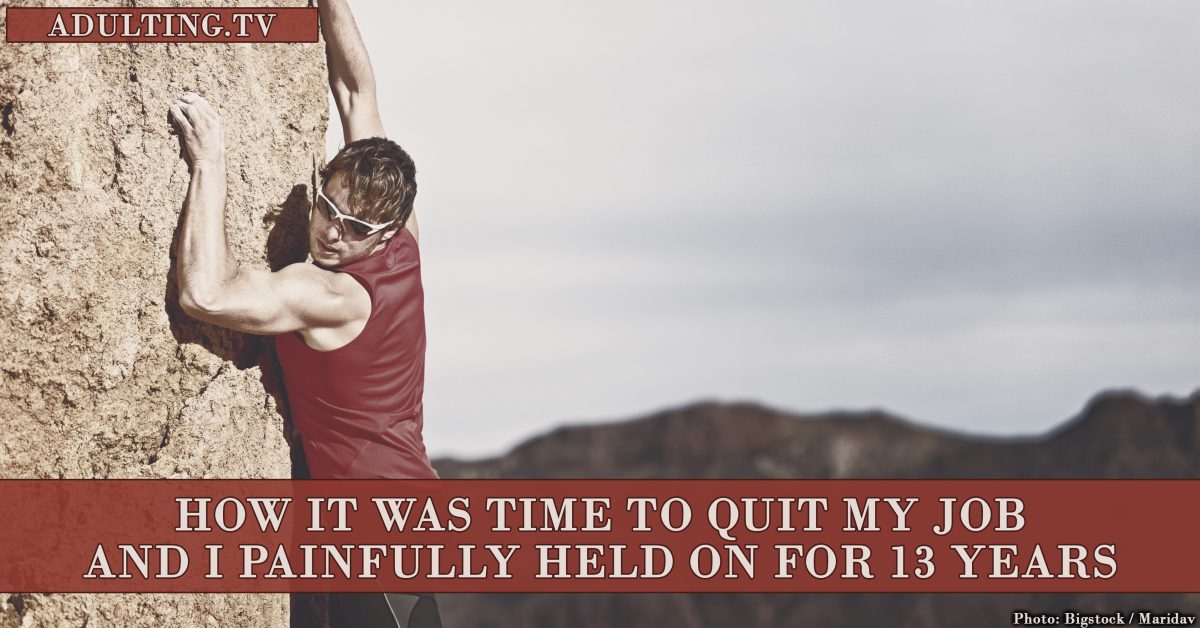
![[B011] Earn Money AND Do What You Love](https://adulting.tv/wp-content/uploads/2016/11/earn-money-do-what-you-love-1200x628.jpg)
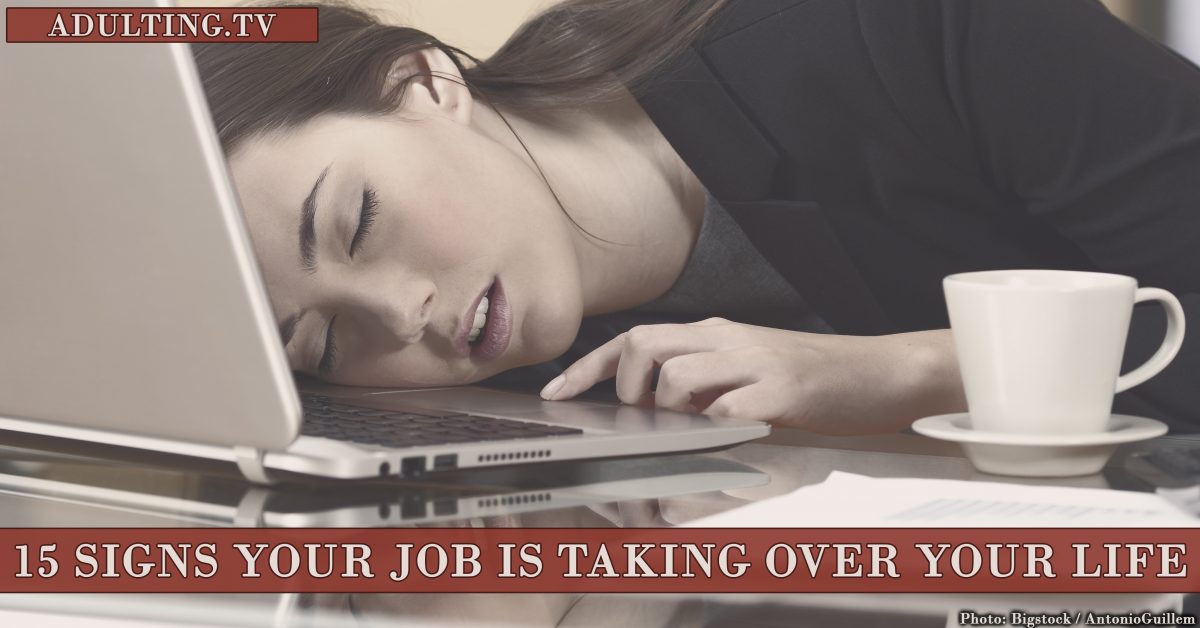
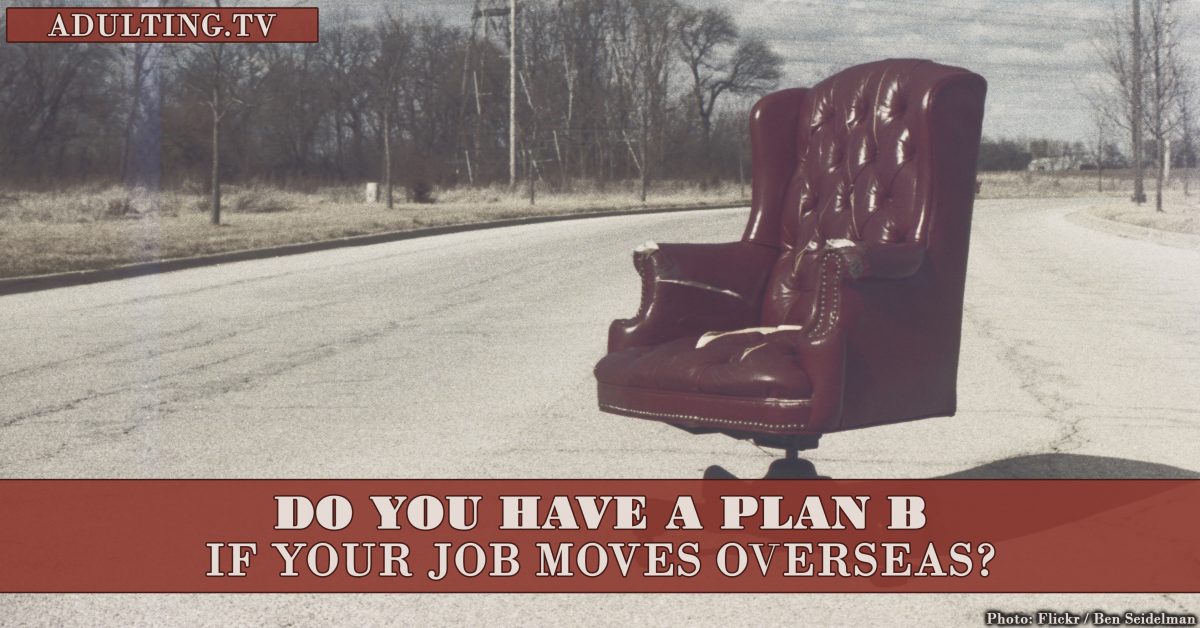
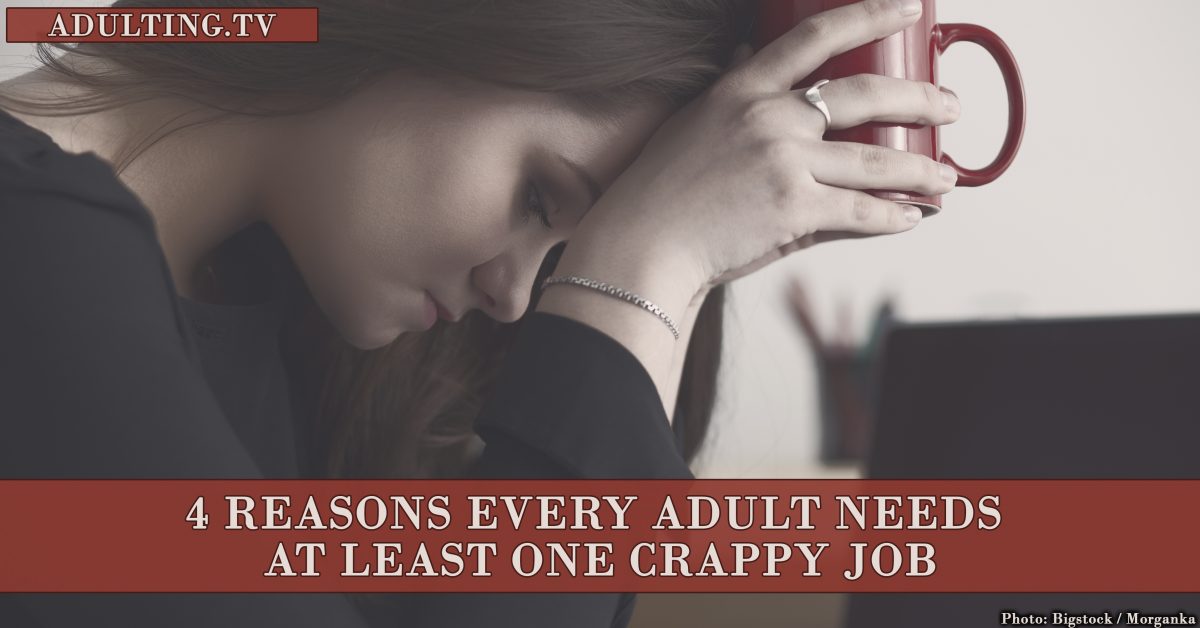
![[A048] You’re Fired: Move Forward in the Face of Job Loss](https://adulting.tv/wp-content/uploads/2016/12/a048-1-1200x628.jpg)


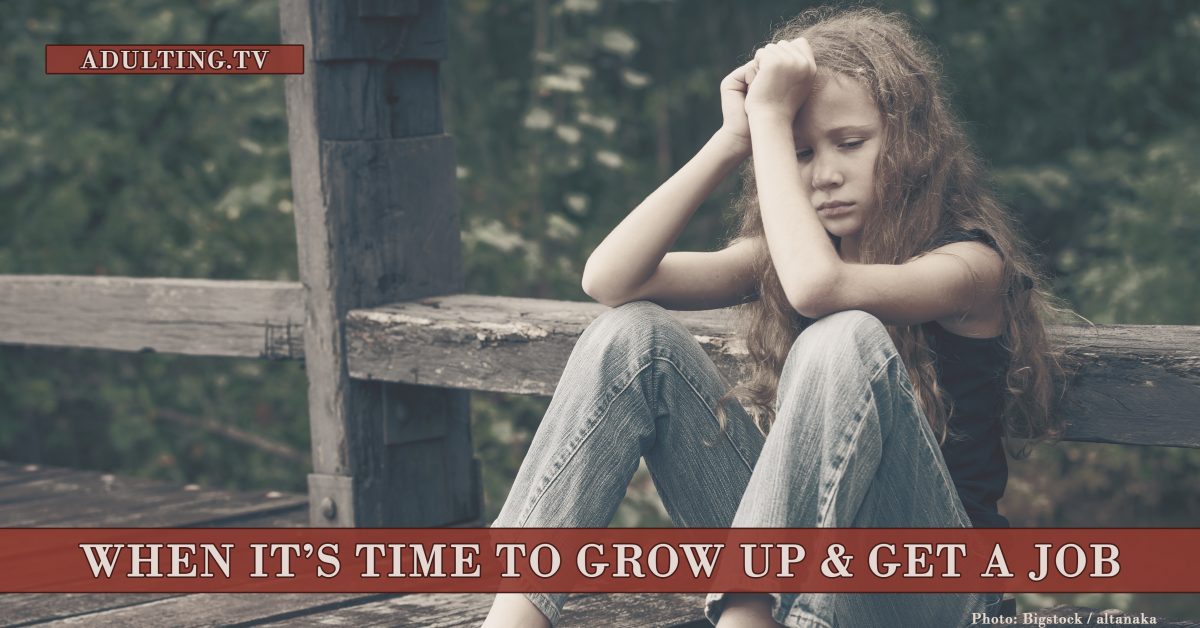


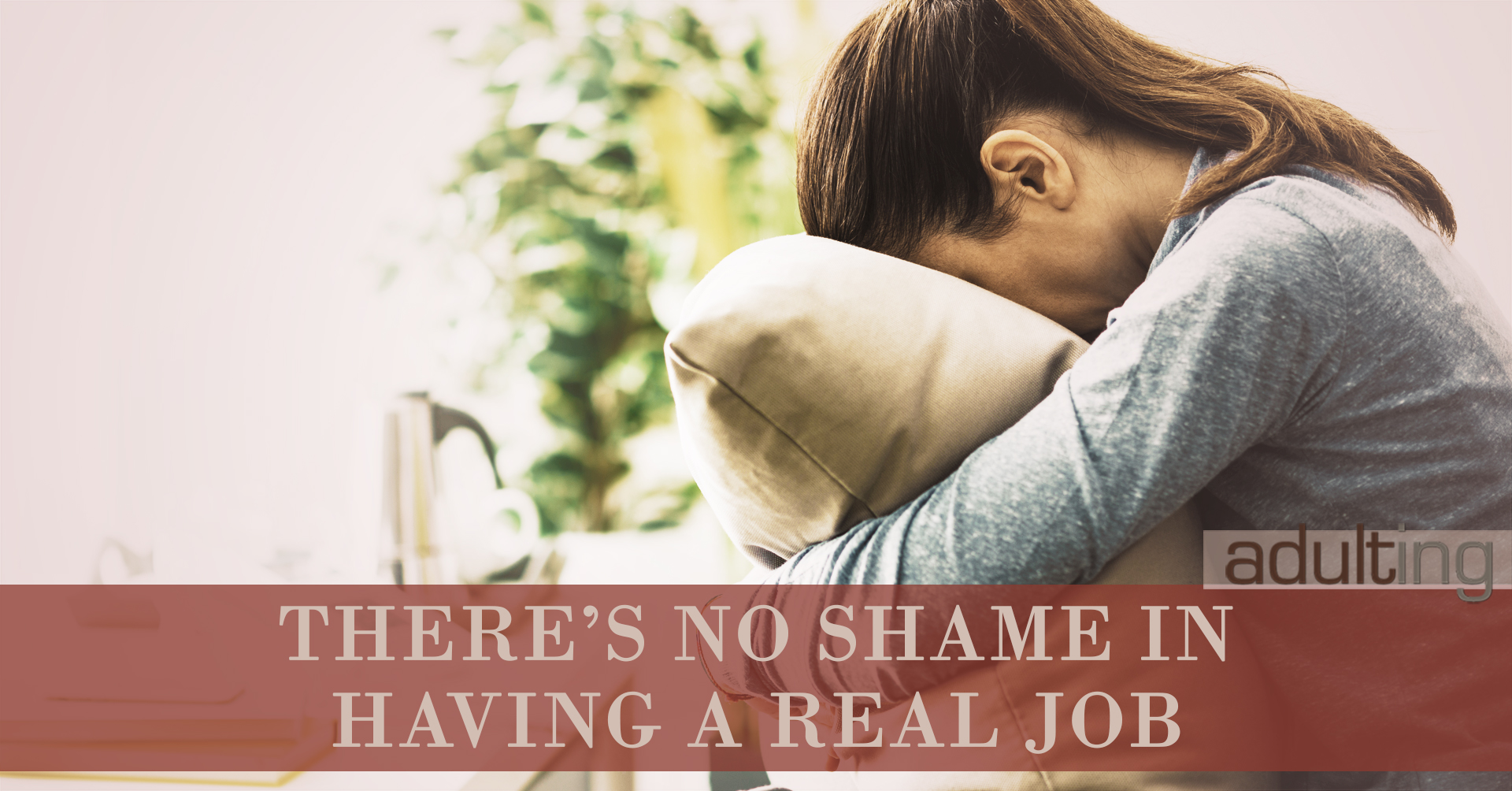

![[A044] Start It Up: Make Your Entrepreneurial Dreams Come True](https://adulting.tv/wp-content/uploads/2016/11/a044-1200x628.jpg)

